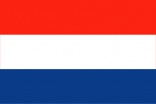Home › magazine › june july 2012 › european reports › Agreement at last for Dutch cleaners
Agreement at last for Dutch cleaners
28th of June 2012Nico Lemmens at ISS Facility Services, ECJ's reporter in the Netherlands, brings news after a new collective agreement. This comes after a long period of dispute between trades unions and employers.
In April, trades unions and employers in the Dutch cleaning sector have agreed in principle upon a new collective labour agreement for 2012 and 2013. The deal consists among other things of a substantial wage increase. Parties also entered into agreement about respect, training, pensions, work pressure and a structural approach towards sickness absence.
At a meeting of the Dutch cleaning association OSB a considerable majority of its members agreed with the deal.
A wage increase of well over five per cent in two years is part of the package. Considering the economic recession, the shrinking Dutch cleaning market and the expected substantial cutbacks in government expenditure, the agreement in principle can be called remarkable.
Training budget
Each year a budget will be available for vocational training of 6,000 employees and Dutch language courses for 500 employees. Better collective agreements for employees in administrative functions and in specialised cleaning will be taken into consideration.
The most difficult subject during the negotiation process was the issue of sickness absence. Parties agreed upon a broad study to develop ways and means to reduce absence drastically. The study is to be conducted by an independent research institute. Part of the research will be a representative pilot scheme. A representative list of customers will be composed by unions and employers. For cleaning personnel working with these customers, the existing system in which the first few days of absence are not paid is to be abolished, to measure the effects on absenteeism.
Results binding
The design of the study and the selection of the independent research institute is still to be completed. However the study and pilot are to be conducted before the end of 2013. The results will be binding for unions and employers.
During the last few decades, the Dutch cleaning sector has seen high workloads, low quality of working conditions, questionable treatment of cleaning personnel, fierce price competition and hardening of industrial relations due to decreasing cleaning budgets. For a long period of time, cost reduction was the single most important factor in awarding contracts, to the detriment of both quality of work and quality of working conditions.
Together with the Code of Responsible Market Conduct (see ECJ issue April/May 2012) and the OSB Quality Mark (effective January 1 2013), this collective agreement could well result in a structural qualitative improvement of the sector.










